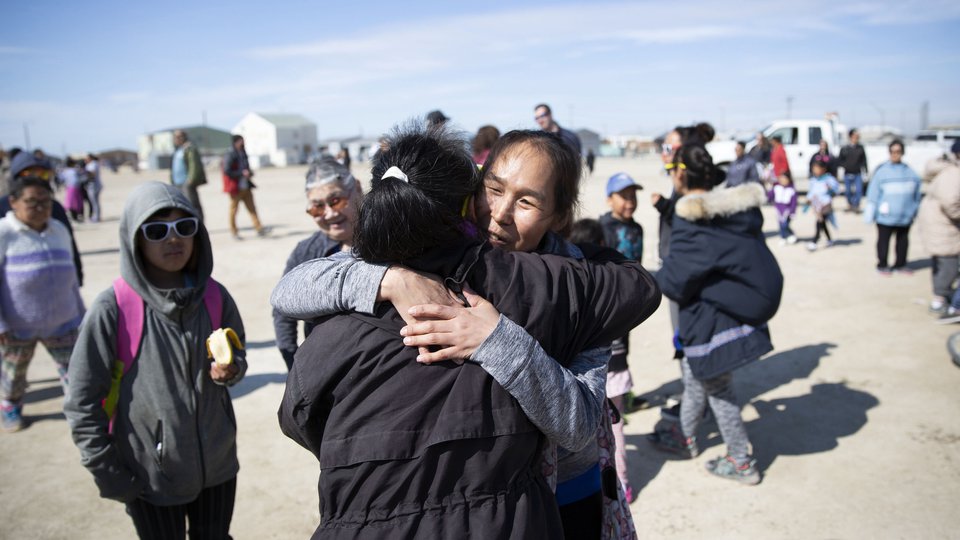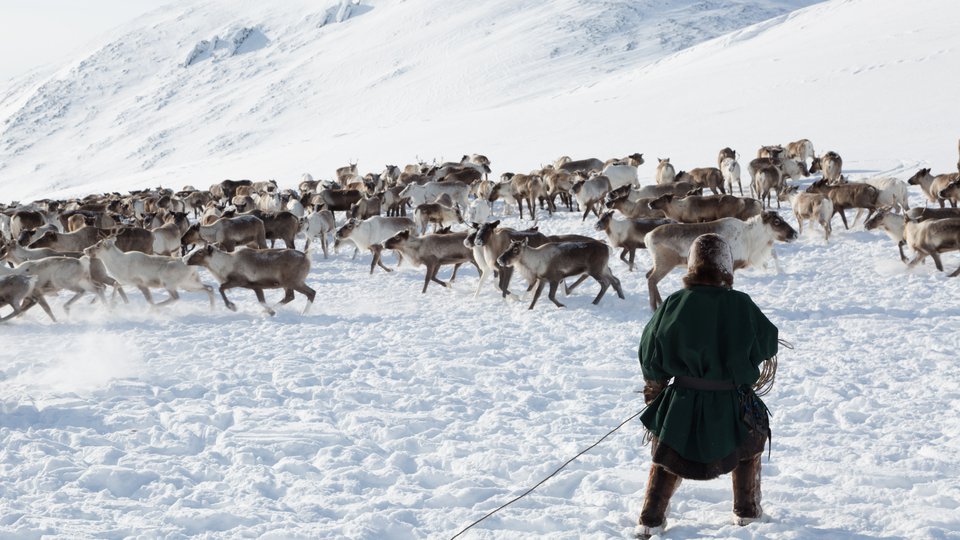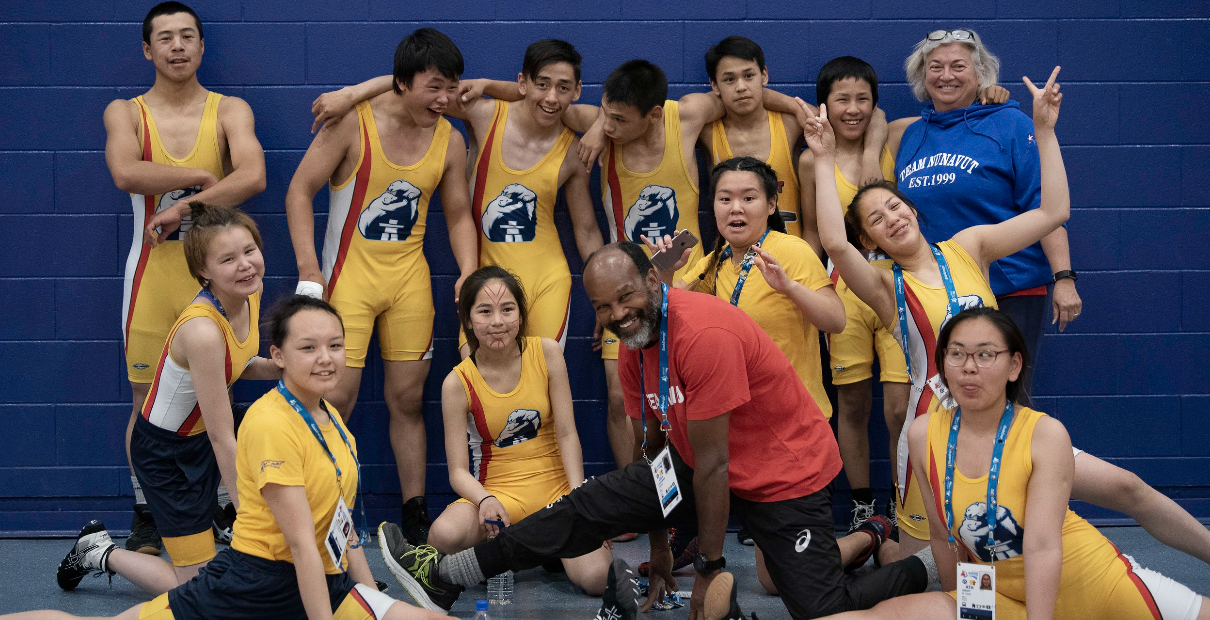
Chris Crooks arrived in Cambridge Bay looking for a simpler life. He’d run a family farm, spent most of his life teaching and coaching and was trying to retire again, for the third time.
Crooks started doing sports seriously in middle school and saw the positive effects discipline, training and competition had on his life. When he arrived in the North, he felt inspired to pass on those same benefits to young people in the community.
The Cambridge Bay Wrestling Club was born to a small group of teens, interested in getting more physical, more social and keeping busy. The group started with kids aged 6 to 17 and expanded to include anyone willing and able.
“It was a bit like Lord of the Flies in the beginning,” Crooks said. “Kids running around with no direction.”
It took a few months to teach everyone about commitment and showing up on time, said Crooks. Then he noticed more kids taking it seriously. He knew then the club could be a way for the teens to make connections, build life skills and travel beyond the borders of the hamlet.
The first tournament was in Iqaluit, a long way from Cambridge Bay, especially for those who had never left their families or friends. This had a profound effect on everyone involved and they came back feeling ambitious. Not only to compete but to see what the world has to offer beyond the Cambridge Bay airport.
“It started off as a kinder gym, a place for everyone to come and hang out,” Crooks said.
The little after-school program changed when the half-dozen competitors returned from Iqaluit. Everyone saw the opportunities and potential for learning and growth outside of the community, said Crooks. While in Iqaluit, students went to museums, restaurants and cultural activities. It taught all of them the importance of learning to budget and fundraise for next time. The trip became about much more than wrestling, it was character-building, helping young athletes see a world beyond the one they knew.
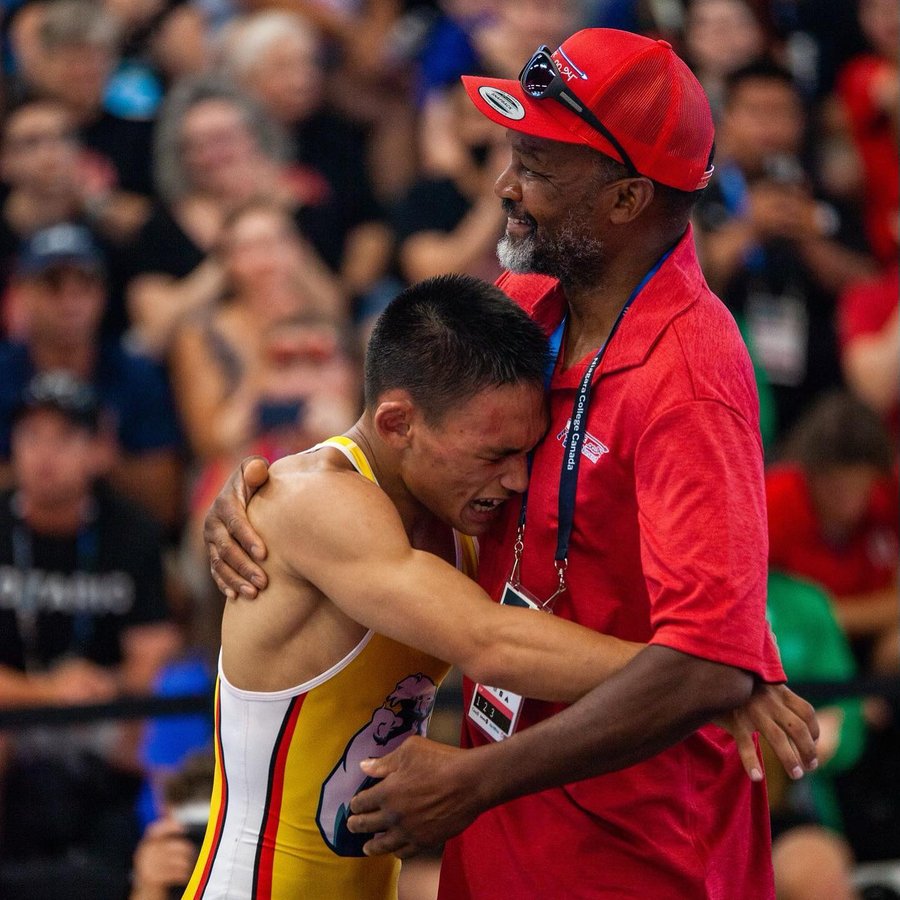
Wrestler Eekeeluak Avalak and and coach Chris Crooks.
Word got around and others joined, discovering wrestling could be a vehicle for success outside of sports. Locals wanted to be an important part of their society. They were all looking for ways to contribute, give back and help others like themselves.
“That’s when we started seeing tons of young people wanting to get involved,” Crooks said.
They traveled to other competitions around Nunavut and even tournaments in the South. Eekeeluak Avalak got involved with the after-school program early. He won a gold medal at the North American Indigenous Games in Halifax in 2023. This was his second gold in as many years. He thanked everyone who helped him on his path, including Crooks.
Then Chris and his dedicated team of wrestlers and volunteers had a purpose. They wanted to expand their goals to train harder, smarter and all year round. .
“There’s no wrestling in the summer, so we found a way to train and keep our heads in the game.” Crooks said.
Through a combination of grants and building off the success of wrestling, they started a bike-share program.
Crooks says the program is not only an excellent opportunity to cross-train, the bikes are an activity to build confidence and self-esteem. They also create a chance for others to share their knowledge through mentorship and skill-building workshops.
Crooks continued to see opportunities for his growing number of dedicated leaders. He started another program, this time with cross-country skis. He wants everyone to get involved in physical, and outdoor activities, year-round. He also thinks the skills and confidence built are not just for those looking to finish high school. It works for everyone in the hamlet, young and old.
“We went from bikes to skis, to kayaks, it’s working super well.”
“Find your passion and go for it.”
Eekeeluak Avalak
The downtime of the pandemic created a need for new ideas. The most impactful were Nuna Doctors or “on the land doctors.” This service helps bring basic first aid training and awareness of emergency situations Cambridge Bay youth might come across in their daily lives.
This non-judgmental approach allows young people to own all their experiences, good and bad. To use what they know, what they’ve seen and been through to help develop hands-on skills. It gives them knowledge and equipment to make informed decisions in their community or out on the land. Crook’s daughter was involved in setting up the program, and both his children now have the spirit of giving back, creating similar programs in cities throughout the US and Canada.
The whole package is now a part of the larger Cam-Bay Wrestling Project, helping the helpers be more prepared for life inside and outside of Nunavut. Wrestling, skiing and biking have helped students stay motivated and move on to college, coaching and universities. This ‘beyond the mat’ approach keeps Crooks and his volunteers in touch with their students, long after they’ve finished school.
Crooks thinks this is the most important part of what he’s accomplished in the North.
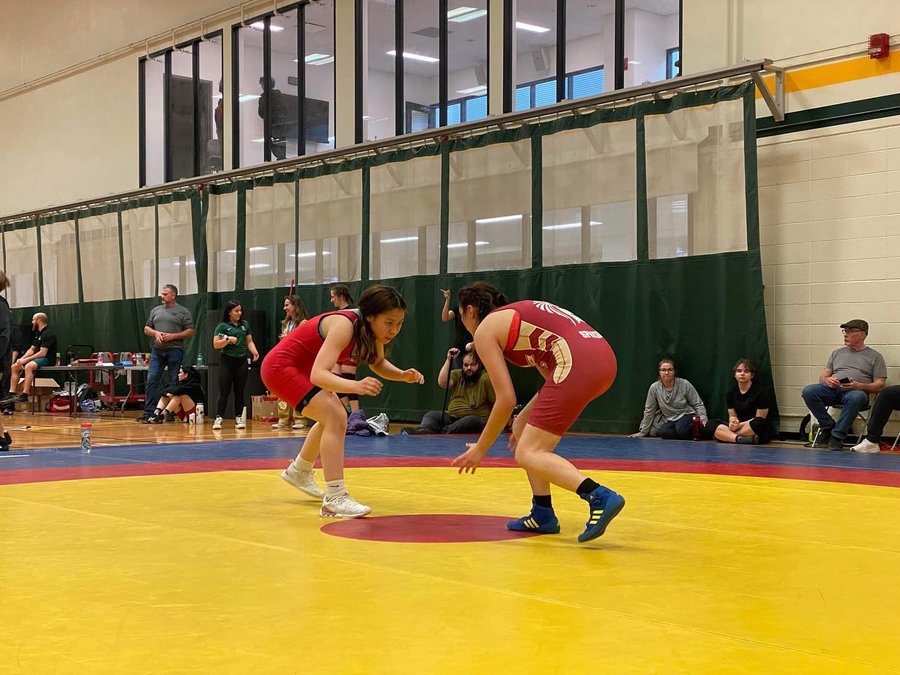
Cambridge Bay Wrestling Club practices at the University of Alberta
Eekeeluak Avalak joined the club reluctantly. He didn’t see the benefit of committing to anything long-term. Crooks convinced him and brought him to his first tournament in Iqaluit where he won easily in his weight class. Avalak had seen a lot for his age, at home and in his community. So Crooks and his wife had him sign a volunteer agreement and gave him strong mental and emotional encouragement inside and outside the gym.
Avalak was dealing with the loss of his brother, friends and the absence of his mother when he arrived at the Canada Summer Games. His whole life had led up to this moment. With the support of his coach and teammates, he went on to win gold at the Games. This led him to an elite athlete program in Edmonton and starting a degree at the University of Alberta in Native Studies.
“Find your passion and go for it,” Avalak said. “Take risks.”
Crook’s goal now is to slow down and retire, again. He wants the ideas, the work ethic and the spirit of giving back to continue long after he’s gone. He’s relying on staff and volunteers to continue the work and take it further than he imagined when he arrived many years ago.
His next challenge rests in Alaska, at the Arctic Winter Games, where he hopes the sights and scenery will be as important to the team as winning on the mat. Crooks thinks travel is the key to helping everyone, no matter their situation, goals, dreams or ambitions.
“Travel is one of the most eye-opening experiences one can have.”

